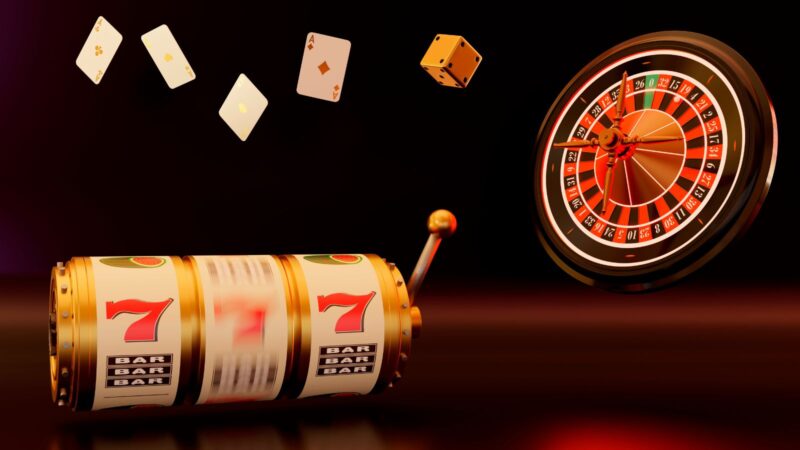
In the realm of gambling, individuals exhibit diverse motivations and behaviors. Understanding the distinct types of gamblers can provide valuable insights into their habits and preferences.
This article delves into the categories of Social, Professional, Escape, Problem, and Compulsive gamblers, shedding light on their characteristics and tendencies. By examining these classifications through a research-driven and analytical lens, readers can gain a comprehensive understanding of the various personas that engage in this complex and multifaceted activity.
The Social Gambler
Within the realm of gambling behavior, the Social Gambler stands out as a distinct category characterized by their preference for engaging in gambling activities primarily for social interaction rather than financial gain.
Unlike Problem or Pathological Gamblers who exhibit compulsive behaviors and negative consequences, Social Gamblers view gambling as a form of entertainment and a way to connect with others.
Research suggests that Social Gamblers often participate in group activities such as poker nights, sports betting pools, or casino outings as a means to bond with friends or family members.
Their motivations stem from the enjoyment of the social aspects of gambling rather than the pursuit of monetary rewards. While Social Gamblers may still experience wins and losses, their main focus remains on the experience itself rather than the financial outcome.
Understanding the unique characteristics and motivations of Social Gamblers is crucial for developing targeted interventions and support systems that cater to their specific needs within the diverse landscape of gambling behavior.
The Professional Gambler
Engaging in strategic analysis and calculated risk-taking, the Professional Gambler approaches gambling as a disciplined pursuit aimed at maximizing profit through skill and knowledge. Unlike recreational gamblers, professionals rely on data, mathematical models, and extensive research to gain an edge in their gambling activities. These individuals often specialize in specific games where they believe their expertise gives them a competitive advantage, such as poker, sports betting, or blackjack.
Professional gamblers understand the importance of bankroll management and emotional control, essential skills that help them navigate the uncertainties of gambling with a level head. They view gambling not as a form of entertainment, but as a serious endeavor where success is measured by financial gains rather than mere enjoyment.
While professional gambling can be lucrative for those with the necessary skills and dedication, it also comes with its own set of challenges, including the pressure to perform consistently, the risk of burnout, and the need to constantly adapt to changing market conditions. Despite these challenges, professional gamblers are driven by a desire for financial independence and the freedom that comes with being able to earn a living through their gambling prowess.
The Escape Gambler
The Escape Gambler’s reliance on gambling as a means to avoid or cope with life’s challenges sets them apart from other types of gamblers. Unlike professional gamblers who approach gambling as a skill-based activity, escape gamblers use it as a form of distraction or relief. This type of gambler often turns to betting and gaming to escape from stress, anxiety, or emotional turmoil, seeking temporary respite from their problems in the thrill of placing bets.
Escape gamblers may find themselves caught in a cycle where the highs and lows of gambling provide a temporary escape from reality, leading to a compulsive need to continue seeking that sensation. This behavior can result in detrimental consequences, both financially and emotionally, as the underlying issues that drive the escape gambler to seek refuge in gambling remain unaddressed.
Understanding the motivations and triggers behind escape gambling is crucial in providing support and interventions to help individuals break free from this pattern and find healthier ways to cope with life’s challenges.
The Problem Gambler
A problem gambler is an individual whose gambling behavior has a detrimental impact on their life, often leading to financial, emotional, and interpersonal difficulties. Problem gambling is characterized by an inability to resist the urge to gamble despite negative consequences. Research indicates that problem gambling is associated with various psychological issues such as anxiety, depression, and substance abuse disorders.
Problem gamblers often experience significant financial hardships due to their excessive gambling habits. They may borrow money, sell possessions, or even resort to illegal activities to fund their addiction. This financial strain can lead to a cascade of negative effects on their overall well-being, including increased stress levels and strained relationships with family and friends.
Interpersonal difficulties are common among problem gamblers, as their preoccupation with gambling can cause them to neglect important relationships and responsibilities. This can lead to feelings of isolation, guilt, and shame. Seeking help through therapy, support groups, or specialized treatment programs is crucial for problem gamblers to address their addiction and regain control of their lives.
The Compulsive Gambler
Compulsive gamblers often find themselves trapped in a cycle of betting on various games of chance, despite knowing the risks associated with and consequences of their actions. This behavior is characterized by an inability to resist the urge to gamble, leading to negative impacts on personal and financial well-being. Compulsive gambling, also known as gambling disorder, is recognized as a mental health condition that requires intervention and treatment.
Individuals with compulsive gambling tendencies may experience intense cravings to gamble, leading to a loss of control over their behavior. This can result in significant financial losses, strained relationships, and other adverse consequences. Research suggests that compulsive gambling shares similarities with substance addiction, involving changes in brain chemistry and reward pathways.
It is crucial for compulsive gamblers to seek help from mental health professionals, support groups, or specialized treatment programs to address their gambling behavior. With proper intervention and support, individuals struggling with compulsive gambling can work towards recovery and regain control over their lives.
Conclusion
In conclusion, understanding the different types of gamblers can provide valuable insights into the motivations and behaviors of individuals engaged in gambling activities at casinos like Proton888.
By categorizing gamblers into social, professional, escape, problem, and compulsive categories, researchers and practitioners can tailor interventions and support systems to address the specific needs of each group.
This analytical approach allows for a more nuanced understanding of gambling behavior and can inform targeted strategies for prevention and treatment.














